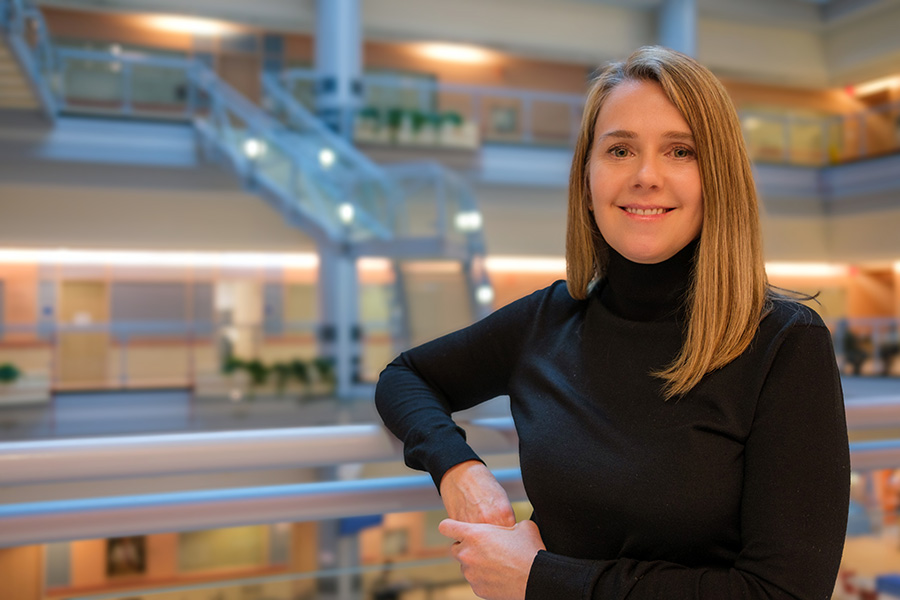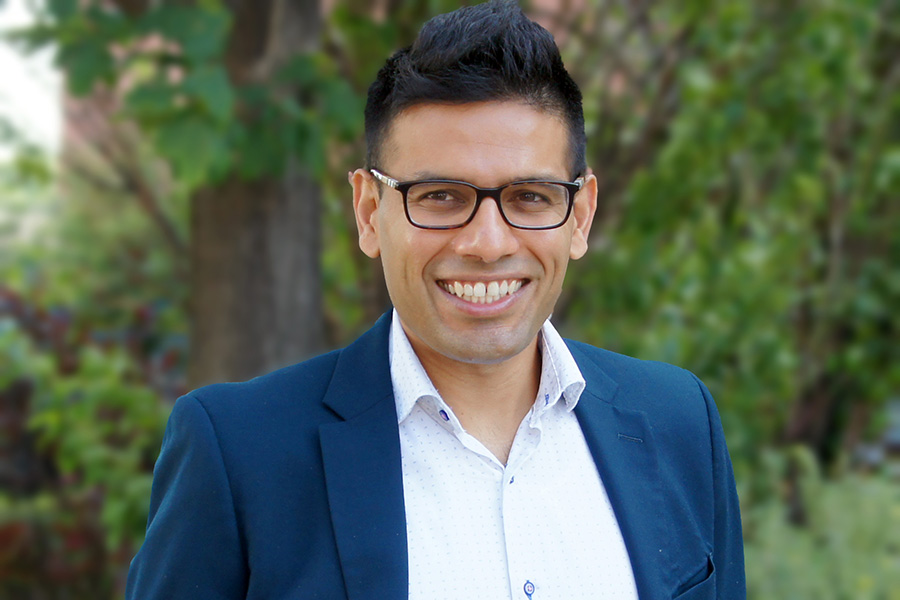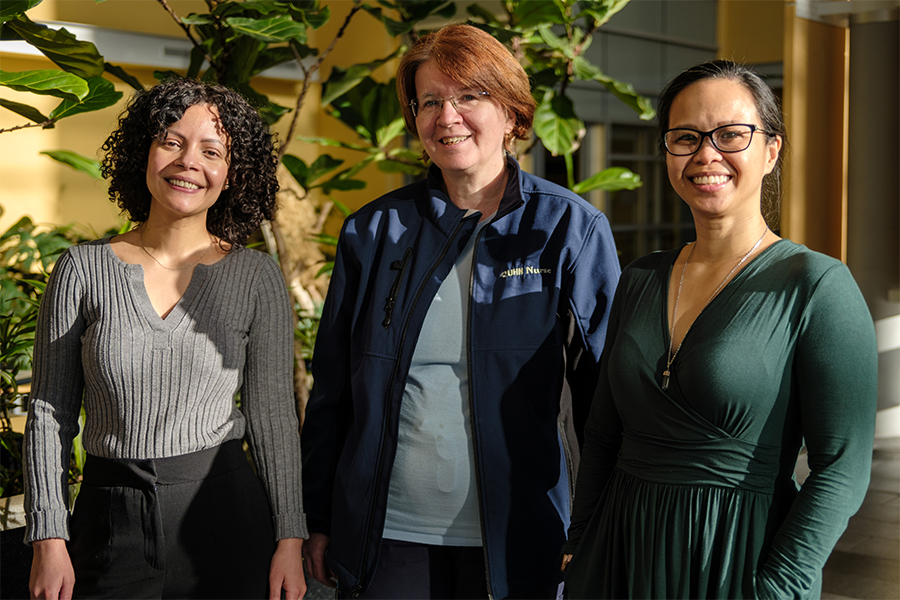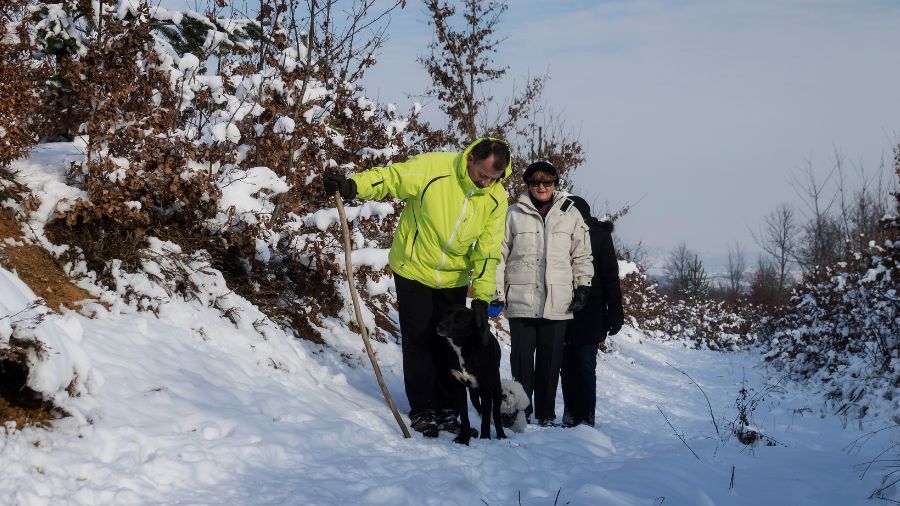
Psychedelic drugs have been held up as a potential breakthrough treatment for a range of mental illnesses, with their benefits promoted by everyone from celebrities to venture capitalists.
But medical research on their efficacy is still in the preliminary stage.
At UHN’s Centre for Mental Health, researchers are working to remedy that.
Two UHN teams received grants of $1 million each from the Canadian Institutes of Health Research (CIHR) last month as part of a special competition to study the therapeutic potential of psilocybin – the active compound in “magic mushrooms” – in combination with psychotherapy.
“It’s a testimony to the quality of work at UHN that we secured two of the possible three grants available,” says Dr. Susan Abbey, UHN’s Psychiatrist-in-Chief and Program Medical Director, Centre for Mental Health.
“We are taking the lead in this exciting new field with our teams pioneering research methodology and advancing patient safety protocols.”
Dr. Sarah Hales, psychiatrist and clinician investigator with Princess Margaret Cancer Centre’s Department of Supportive Care, is principal investigator (PI) on one project; Dr. Joshua Rosenblat, a staff psychiatrist and researcher at UHN’s Poul Hansen Family Centre for Depression, is PI on the other.
Research to date from various academic centres around the world has found that when psychedelics are combined with psychotherapy before, during and after the dosing session, participants can experience profound positive shifts for a variety of mental illnesses.
The psilocybin induces an altered state of consciousness that is thought to increase emotional openness and empathy and enhance neuroplasticity – the brain’s ability to reorganize neural connections.
The accompanying psychotherapy helps patients integrate insights from their experience.
Psilocybin is not legal in Canada and can only be obtained by an exemption from Health Canada or through its Special Access Program. Earlier this month, Australia became the first country in the world to legalize the use of psychedelics to treat some mental health conditions.

Working in a developing field with a limited evidence base is not new to Dr. Hales. She specializes in understanding the patient and family experience of end-of-life, an emerging field of academic inquiry when her career began in the early 2000s.
Dr. Hales is a co-developer of CALM (Managing Cancer and Living Meaningfully), a psychotherapy, adopted now in more than 15 countries, that has been shown to alleviate depressive symptoms and assist in end-of-life preparation for those diagnosed with advanced cancer.
That experience attracted psychiatrists Drs. Emma Hapke and Daniel Rosenbaum, co-founders of UHN’s Psychedelic Psychotherapy Research Group, and co-PIs on this study. The two were looking for the right therapy model to pair with psilocybin.
Working collaboratively, they adapted principles of CALM and designed a new therapy called PEARL (Psilocybin-assisted Existential, Attachment and Relational Therapy).
“Timing is everything in research,” says Dr. Hales. “The CIHR grant was tailor-made for our group because one of the funding call areas was advanced cancer and specifically emphasized the importance of the psychotherapeutic approach to be paired with psilocybin.”
Their study will investigate whether PEARL therapy reduces rates of depression and other distress outcomes among this patient group.
PEARL therapy is a seven-week intervention and over the course of the multi-year trial 46 participants will receive either a high dose psilocybin session or, for the control group, a very low dose psilocybin session. Weekly psychotherapy sessions will help prepare participants for the dosing session, and integration sessions will follow to help the patient understand and make meaning from their psychedelic experience.
“For patients with advancing cancer, it can be challenging to demonstrate improvements in psychological well-being over time,” says Dr. Hales.
Working in collaboration with psychosocial oncology and palliative care specialists embedded within the Princess Margaret Cancer Centre (as well as Mount Sinai Hospital’s Temmy Latner Centre for Palliative Care and Sunnybrook Health Science Centre’s Odette Cancer Centre), the researchers aim to ensure that participation in the trial is ultimately safe as well as beneficial for patients and their families.

Dr. Rosenblat is leading the second CIHR-funded trial at UHN. He describes psilocybin as “one of the most promising treatments for depression in the world right now.”
He had been researching the therapeutic potential of ketamine before he expanded into psilocybin in 2019. Since then, he received the first peer-reviewed grant in Canada to support a psilocybin trial in 2021 and was lead author on the national consensus statement on psychedelics for the Canadian Network of Mood and Anxiety Treatments.
His study will explore whether one or two doses of psilocybin is more effective for patients with treatment resistant depression.
The trial will involve 92 participants who will each undergo an eight-week intervention. Participants will be divided into two groups, with half receiving two high doses and the others receiving one high dose and one low dose.
Both groups will also have weekly therapy sessions. Clinical benefits and side effects will be compared between the two groups. The multi-site trial is planned to take place at UHN and The Centre for Addiction and Mental Health (CAMH).
The trial was inspired, Dr. Rosenblat says, by patients who found a second dose of psilocybin far more helpful than one dose.
Underlining the collaborative nature of research in this area, the trial team involves 27 people, including scientists, psychiatrists, multi-disciplinary psychotherapists and patients with lived experience of treatment resistant depression.
Determining what effect a second dose has on patient outcomes has practical benefits too, helping determine if the added costs of administering or the added safety risks of taking a second dose are justified, Dr. Rosenblat says.
“We didn’t have to convince the grant committee that psilocybin was a good idea for further research,” he says. “We needed to convince them that our idea was important, had sound methodology, and will provide a clear and clinically relevant answer at the end of the study.”
Media interest continues to fuel the hype around psychedelics. Drs. Hales and Rosenblat report being frequently asked by patients if they can participate in planned trials.
“There is an enormous push around psychedelics right now – from the public desperate for new mental health treatments, from private industry that see a potential gold mine,” says Dr. Hales. “People want access and I think at UHN we are trying to walk that line of being innovative and, at the same time, cautious.”
Dr. Rosenblat agrees with the approach, stressing that psychedelics such as psilocybin have the potential to be another therapeutic tool mental health clinicians can provide to patients.
“Some people think the mission here is to prove that psilocybin works and to legalize it, but that’s not my view,” he says. “We need to do high quality research not to prove that psilocybin works, but to test if it works, who it works for, and how can we optimize the protocol.”
Both research teams expect to begin their clinical trials in early 2024.


